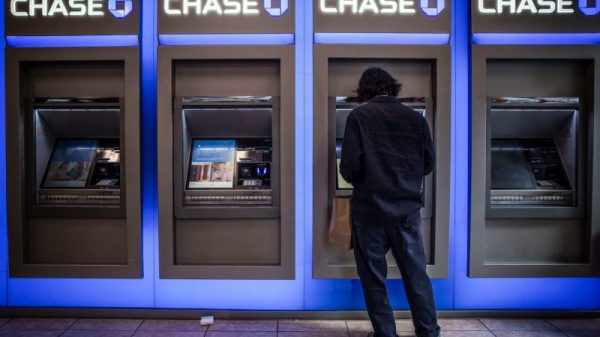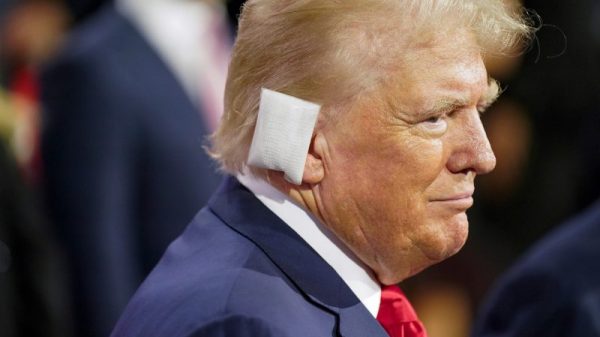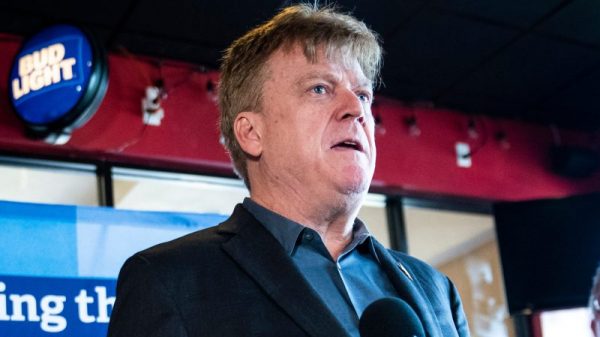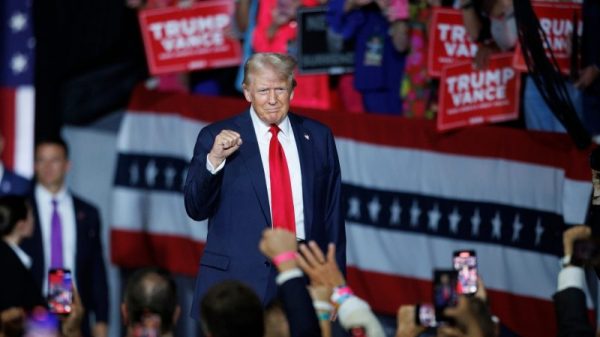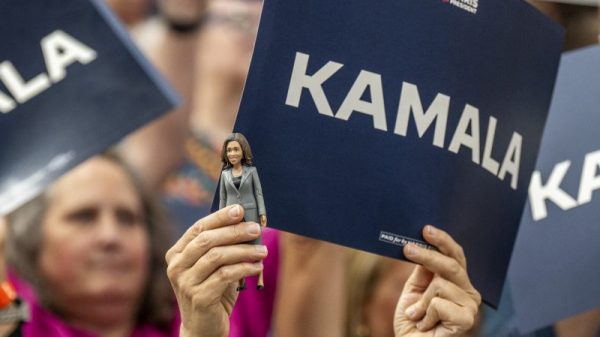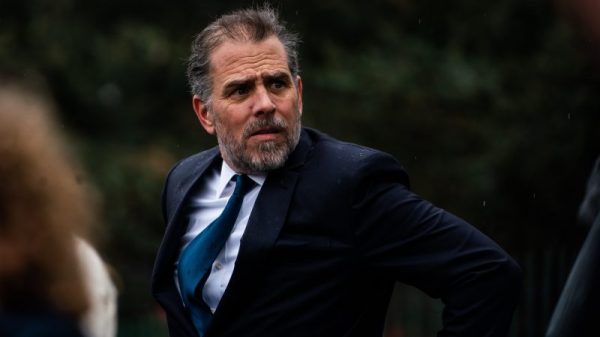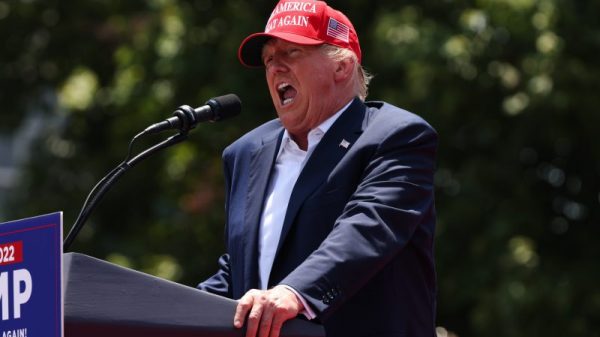Democrats arrived in Philadelphia in 1948, for their first televised national convention, fiercely divided over civil rights.
Liberals were pushing for a strong civil rights platform, and Black protesters outside the convention threatened mass resistance to the draft unless the armed services were integrated. President Harry S. Truman, weakened and running for reelection, feared that such promises would cost him the segregationist South.
The little-known White, 37-year-old mayor of Minneapolis, Hubert Humphrey, was an unlikely figure to settle the debate. But his decision on July 14, 1948 — knowing, as he stepped onto the convention stage, that he was risking the president’s political future and his own — shapes the demographics of the Democratic Party still today.
“My friends, to those who say that we are rushing this issue of civil rights, I say to them we are 172 years late,” Humphrey said, reading from notes he had handwritten barely an hour before. “To those who say that this civil rights program is an infringement on states’ rights, I say this: The time has arrived in America for the Democratic Party to get out of the shadow of states’ rights and to walk forthrightly into the bright sunshine of human rights.”
The speech and its reception forced Truman’s hand, put civil rights firmly in the party’s platform for the first time, and led Southern delegates to rebel — the beginnings of a shift that lost Democrats the South.
And, rather than kill Humphrey’s career, it made him an instant star. He would end up vice president.
“The only thing I think you can compare it to is Barack Obama’s speech at the Democratic convention in 2004 that put this young, relatively inexperienced local politician on the national map,” said Samuel G. Freedman, the author of “Into the Bright Sunshine: Young Hubert Humphrey and the Fight for Civil Rights” and a professor at Columbia University.
Humphrey’s journey to his “sunshine” moment had begun in the prairie community of Doland, S.D., population around 650. He was 11 years old when a Black highway construction crew came to town, the first time he had met people of another race. “Partly as a result of his father’s views on race being ahead of his time,” Freedman said, young Humphrey befriended the workers.
Humphrey later witnessed the segregated South as a graduate student at Louisiana State, an experience that former White House press secretary Bill Moyers said solidified Humphrey’s commitment to the politics of equal opportunity. A third of the population of Baton Rouge was Black, and in Jim Crow Louisiana, “White” and “Colored” signs were posted at every public facility. Humphrey left for Minneapolis thereafter, where he pursued a doctorate, unsuccessfully ran for mayor a first time and continued to learn about discrimination from Cecil Newman, a Pullman car porter and founder of the city’s Black newspaper, the Spokesman.
Newman’s granddaughter, Tracy Williams-Dillard, now the CEO and publisher of the Minnesota Spokesman-Recorder, said Humphrey would “go to dinner with my grandfather, sit in his library and hear the firsthand experiences of racism from a Black man who was living it. He didn’t have to guess.”
When Humphrey was elected Minneapolis mayor in 1945, he became known for fighting racism and antisemitism, creating a Human Relations Council and supporting a fair employment law. By 1948, when he was invited to speak at the convention, the Democratic Party was split between Northerners who largely embraced civil rights and Southerners who used states’ rights to justify segregation within their borders.
Earlier that year, Truman had called on Congress to deliver a strong civil rights package. But as the convention drew near, and as Truman’s popularity languished, he and his advisers fretted about alienating Democrats’ “Solid South.”
“Harry Truman didn’t want the Humphrey plank,” Freedman said. “He wanted a plank that was vague and fuzzy and open to interpretation to keep the Southerners within the party.”
So Humphrey agonized: Should he defy the party and take the fight to the convention floor?
A powerful senator from Illinois, Scott Lucas, sarcastically asked, “Who is this pipsqueak who knows more than Franklin Roosevelt knew about Negro rights?” J. Howard McGrath, the chairman of the Democratic Party, warned Humphrey: “This will be the end of you.”
Meanwhile, the Black protesters outside the convention, led by union organizer A. Philip Randolph, heaped pressure on Democratic leaders.
On the third day of the convention, it was Humphrey’s turn to speak.
“Friends, delegates, I do not believe that there can be any compromise on the guarantees of the civil rights which we have mentioned in the minority report,” he said. “In spite of my desire for unanimous agreement on the entire platform, in spite of my desire to see everybody here in honest and unanimous agreement, there are some matters which I think must be stated clearly and without qualification. There can be no hedging — the newspaper headlines are wrong. There will be no hedging, and there will be no watering down.”
Humphrey’s framing of civil rights as human rights on such a stage was transformative, said John Wright, emeritus professor of African American and African Studies and English at the University of Minnesota.
“It was the right echo of what W.E.B. Du Bois, Walter White, Mary McLeod Bethune and other national African American leaders were arguing at the time,” Wright said, “to get a United Nations declaration that the United States was in violation of the human rights of African Americans.”
In the next morning’s convention coverage, the Philadelphia Inquirer reported that Humphrey’s speech got the “biggest hand of the steamy session.” Nearly three dozen delegates from Mississippi and Alabama left the convention when their efforts to pass a watered-down civil rights plank failed.
Less than two weeks later, Truman issued executive orders desegregating the military and the federal workforce, a seismic shift in America’s racial policies and one of the first victories of what would become the civil rights movement. The orders prompted many Southern Democrats to nominate their own third-party presidential candidate, the segregationist senator Strom Thurmond of South Carolina.
Truman lost parts of the South that fall as a result but won reelection anyhow; his support for civil rights may have helped turn out Black voters. And his identification with the movement sparked a new set of expectations, increasing the pressure on presidents to come.
Humphrey, with a new national profile, was elected to the Senate that year. He went on to help advance historic civil rights legislation in 1957 and steer the 1964 Civil Rights Act.
Deeper into the 1960s, his support for the Vietnam War “obliterated his reputation among liberals,” Freedman said, and “completely obscured his vital role in the civil rights movement.” The changes he helped force, though, have endured.
“Humphrey’s ’48 speech gave us the realignment we have today: a Democratic Party of organized labor, educated liberals, and racial and religious minorities,” Freedman said.
Within decades, the Democrats’ Solid South would turn solidly red.
But in 1964, with Humphrey as Lyndon B. Johnson’s running mate, Democrats won almost everywhere else.







